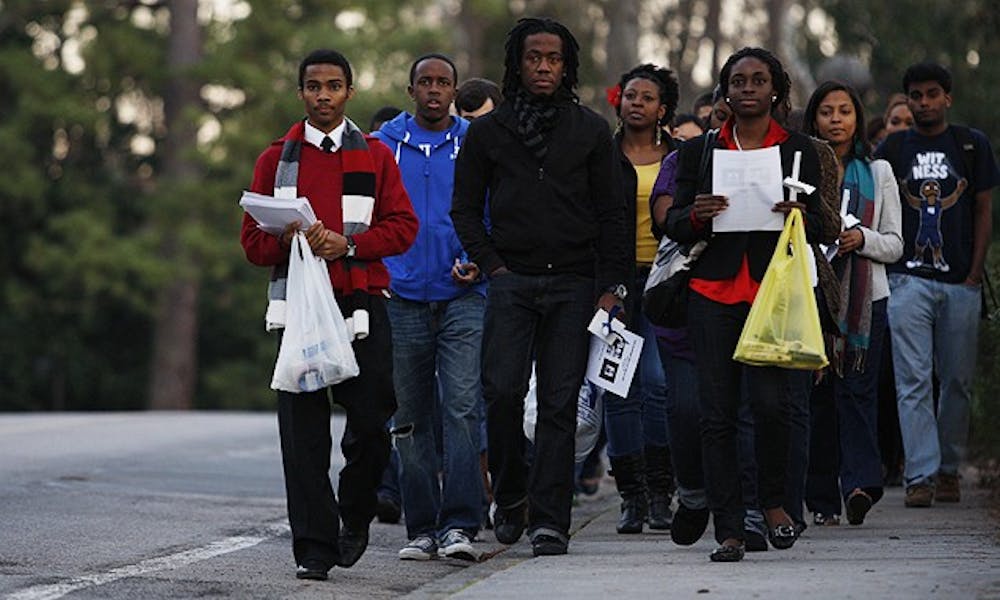It is well known that Martin Luther King, Jr. had a dream. But Ariel Dorfman thinks grapes have dreams too.
At the University’s 2010 Martin Luther King, Jr. commemoration—“Where Do We Go From Here? Overcoming Inequity and Building Community”—in the Chapel Sunday, Dorfman, Walter Hines Page research professor of literature and Latin American studies, discussed keynote speaker Dolores Huerta’s leadership alongside Cesar Chavez in the successful 1960s Delano grape strike.
Huerta, Dorfman said, had helped make the dreams of the farm workers who picked those grapes come true by demanding higher wages for the workers. Today, Huerta is president of the Dolores Huerta Foundation, an organization that helps people start grassroots groups.
“[Grapes] do not want their sweetness sullied by knowing that the hands that pick them are not free,” Dorfman said while introducing Huerta.
Economic equality, central to Huerta’s work, was also integral in her speech.
“[Martin Luther King, Jr.] knew that at the bottom of everything, we had to fight for economic justice,” Huerta said to the filled Chapel, adding that the way to redistribute wealth in the United States is through labor unions.
Huerta noted that other issues America faces include “campaigns of terror” against immigrants and the persistence of racism. Education was another key point in Huerta’s speech.
“If we do not have an educated citizenry, we will have mob rule, and we’re pretty close to that right now,” Huerta said, but adding that it is also important for youth to value “the people that work with their hands.”
Ben Reese, vice president for institutional equity, said this is the first year a Latina woman has given the commemoration address.
“This not only continues a history of presenting prominent social justice leaders, but the appearance of Dolores Huerta is an opportunity to further engage the Latino community in the community of Duke,” Reese said.
The speech was generally well-received by the audience, though some thought the message had a liberal slant, specifically when she labeled talk show hosts Rush Limbaugh and Glenn Beck as evil.
“I thought it was a tad bit political.... I wasn’t sure what her agenda was with that,” freshman Ritza Calixte said. “[But] I liked her speech. I thought it was very vibrant and educated.”
Calvert Johnny, an audience member whose son danced in the processional and recessional for the event, enjoyed Huerta’s speech.
“I think she was pretty profound yet simple,” Johnny said. “She was encouraging us to find our own ground, to think of ourselves as important people.”
Huerta closed her speech with a call for greater political involvement in order to advance economic equality.
“The only way we can honor Dr. King’s legacy is to continue doing the work,” Huerta said
The audience responded with chants of “si se puede,” a Spanish phrase that Huerta and Chavez coined, meaning “yes we can.”
Get The Chronicle straight to your inbox
Signup for our weekly newsletter. Cancel at any time.

